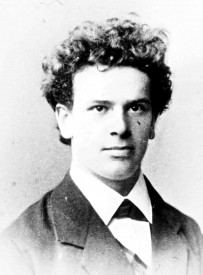Anthropology Unit 1 Intro to Anthro – Review guide
From your notes and Ferraro Chapter 1
Use glossaries, and chapter summaries for additional understanding
What makes Anthro different from the other social sciences?
Four Basic Fields of Anthropology
(why are there so many subfields?) — think about the Iceman movie
Physical Anthropology
Archeology
Cultural Anthropology
Linguistics
Applied Anthropology – what is it? What does it try to do?
Basic questions of anthropology – besides “what’s wrong with those people and why aren’t they like us?”
• What are the commonalities among humans worldwide? What does every culture do?
• What are the variations among humans worldwide? What are the things that only some cultures do?
• Why do these similarities and variations exist in the first place? Why aren’t all human cultures the same?
• How does humanity change thorugh time? Is it still evolving? If so, how?
What makes us human? Physically:
Bipedalism
Relatively small teeth for a primate of our size
Relatively large brains for primates of our size
Using modern language to communicate ideas
Use complex sets of ideas, called culture in order to survive
In fact — Two types of culture!!
Culture as ideas (about identity, nature, social relationships)
Culture as artifacts – material culture, stuff humans use for survival
Culture is an extrasomatic means of survival – less need to adapt physically, or somatically, when we are able to adapt through behaviorial or material means.
Two types of modernity –
Antatomical modernity – the point where our ancestors are indistinguishable from modern living human populations
Behavioral modernity – the point where our ancestors begin behaving in a way that’s indistinguishable from modern, living populations.—this is determined by looking at past behaviors such as objects made by proto- humans – especially the use of symbolism, substitution of one thing for another. Complex use of symbols is a big part of behavioral modernity –
Some may argue this is the only true uniquely human trait.
- What is the history of anthropology?
Colonialism
How can we make these people work for us?
Drawbacks
Racism
Social Darwinism
Ethnocentrism
Antiquarianism
Fascination with old objects, prior civilizations
Focused on
Large stuff, elites – no concern for ordinary people’s lives
Western civilization as fully evolved
Money value, not knowledge value
Shallow time concept (less after 1900)
American Historicism (Franz Boas) - Ethnographic facts must preced the development of cultural theories
- Any culture is partially composed of traits diffused from other cultures
- Direct fieldwork is absolutely essential
- Each culture is to some degree unique
- Ethnographers should try to get to the view of those being studied (emic) not their own view (etic).
Scientism
Everything can be explained through data
Emic (from the view of the culture being studied) vs. Etic (bringing an outsider’s view and comparative information from other cultures) – need for both in Anthro studies of culture
Holism
Recognition that all the different parts of a culture are interrelated and interdependent – studying one aspect of the culture is not enough to get a complete understanding of the whole
Why is a holistic approach essential for the study of culture?
What is ethnocentrism? What are its dangers for Anthro? The larger world?
What is cultural relativism? How does it work in studying cultures?
Ethnology vs. ethnography
What are you hoping to get from your study of Anthro? (not gradewise….reflect and give me a real life answer)

